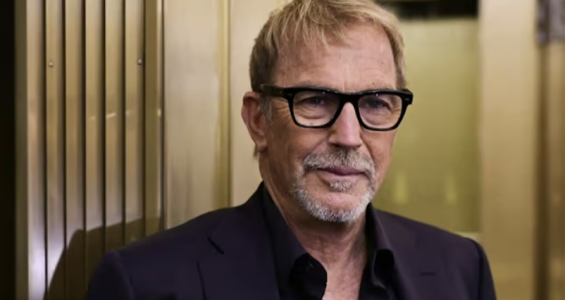Scammed by Kevin Costner? How one woman lost $62,000—and how you can stay safe online
By
Veronica E.
- Replies 0
It seemed like a dream connection: friendly messages from someone claiming to be Kevin Costner, shared conversations, and even talk of investing together.
But for one woman in Evanston, Illinois, the relationship ended in heartbreak—and a $62,000 loss.
The man she trusted wasn’t the famous actor at all, but a scammer hiding behind a screen.
These types of scams are growing more sophisticated, and even the most cautious among us can be caught off guard.
Let’s take a closer look at how it happened—and what you can do to protect yourself and your loved ones.
Over six months, she sent more than $62,000 in gift cards, believing the money was being used for investments.

According to the Evanston Police Department, the woman was contacted on Telegram by someone claiming to be Kevin Costner.
The scammer built trust gradually over time, shared stories about business opportunities, and eventually convinced her to send large sums of money using gift cards.
The funds, she was told, would be converted into cryptocurrency.
Police now say the money is likely unrecoverable.
The woman is working with her credit card companies, hoping to recover some of what was lost—but authorities say an arrest is unlikely.
At first glance, many of these schemes seem far-fetched.
But scammers are skilled at creating a believable backstory.
They often use emotional appeals, promises of friendship or romance, and urgent-sounding messages to pressure their targets.
And when they pose as someone famous, the illusion can feel especially persuasive.
The Federal Trade Commission (FTC) has issued multiple warnings about these types of scams.
In many cases, imposters use fake social media accounts to reach out directly to fans.
They may ask for donations, promote false investments, or even claim you've won a prize—if you send a small fee first.
Here are some common warning signs to help spot a celebrity scam:
If someone claiming to be a celebrity reaches out to you online:
If you’ve already sent money, contact your bank or the company that issued the gift cards right away. They may be able to stop the transaction or offer some form of recovery.
Scammers often assume that older adults may be more trusting or less familiar with digital communication.
But knowledge is power.
By staying informed and talking openly about these risks, you can help prevent others from being fooled.
It’s easy to feel embarrassed after being scammed—but these criminals are experts at what they do.
What matters most is what we do next.
By staying cautious, informed, and connected, we can help one another steer clear of costly mistakes.
Let’s keep our money—and our peace of mind—right where it belongs.
Read next: This online scam completely drained her bank account—Here’s how you can avoid the same disaster

Has a stranger online ever claimed to be a public figure or tried to lure you into an investment or donation? How did you handle it? Your story could help others in the GrayVine community avoid the same pitfalls. Leave a comment and help others stay safe!
But for one woman in Evanston, Illinois, the relationship ended in heartbreak—and a $62,000 loss.
The man she trusted wasn’t the famous actor at all, but a scammer hiding behind a screen.
These types of scams are growing more sophisticated, and even the most cautious among us can be caught off guard.
Let’s take a closer look at how it happened—and what you can do to protect yourself and your loved ones.
Over six months, she sent more than $62,000 in gift cards, believing the money was being used for investments.

Scammers often pose as celebrities like Kevin Costner to gain trust and exploit unsuspecting victims online. Image Source: YouTube / NBC News.
What happened?
According to the Evanston Police Department, the woman was contacted on Telegram by someone claiming to be Kevin Costner.
The scammer built trust gradually over time, shared stories about business opportunities, and eventually convinced her to send large sums of money using gift cards.
The funds, she was told, would be converted into cryptocurrency.
Police now say the money is likely unrecoverable.
The woman is working with her credit card companies, hoping to recover some of what was lost—but authorities say an arrest is unlikely.
Also read: Bitcoin scam nearly cost a 73-year-old $20,000—here’s how she was saved
Why do celebrity scams work?
At first glance, many of these schemes seem far-fetched.
But scammers are skilled at creating a believable backstory.
They often use emotional appeals, promises of friendship or romance, and urgent-sounding messages to pressure their targets.
And when they pose as someone famous, the illusion can feel especially persuasive.
The Federal Trade Commission (FTC) has issued multiple warnings about these types of scams.
In many cases, imposters use fake social media accounts to reach out directly to fans.
They may ask for donations, promote false investments, or even claim you've won a prize—if you send a small fee first.
Also read: Maryland man loses $40K to convincing scam—here’s how to protect yourself
Watch for the warning signs
Here are some common warning signs to help spot a celebrity scam:
- They ask for money, gift cards, or crypto. No legitimate celebrity will ever ask for financial help online.
- They want to chat on private platforms. Scammers often shift conversations to apps like Telegram, Signal, or WhatsApp.
- They shower you with flattery or urgent requests. If someone seems too eager or pushes for quick action, take a step back.
- They avoid phone or video calls. Excuses like “bad connection” are a common tactic.
- Their profile looks suspicious. Few followers, no verification check, or inconsistent details are all clues.
Also read: Scam alert—why your phone is suddenly getting fake job offers
What to do if you’re contacted
If someone claiming to be a celebrity reaches out to you online:
- Search their name plus the word “scam.” You may find alerts or news stories.
- Verify any causes or charities they mention. Look them up before donating.
- Never send money or gift cards to someone you’ve never met. Even if they seem trustworthy.
- Report the scam. Use the platform’s reporting tools and notify the FTC at ReportFraud.ftc.gov.
If you’ve already sent money, contact your bank or the company that issued the gift cards right away. They may be able to stop the transaction or offer some form of recovery.
Why seniors are often targeted
Scammers often assume that older adults may be more trusting or less familiar with digital communication.
But knowledge is power.
By staying informed and talking openly about these risks, you can help prevent others from being fooled.
Simple ways to protect yourself and loved ones
- Start the conversation. Talk with friends or family about common scams—even sharing a news story can spark helpful awareness.
- Adjust your privacy settings. Limit who can message you or see your posts on social media.
- Be cautious with unsolicited messages. If something feels off, it’s okay to ignore or block the sender.
It’s easy to feel embarrassed after being scammed—but these criminals are experts at what they do.
What matters most is what we do next.
By staying cautious, informed, and connected, we can help one another steer clear of costly mistakes.
Let’s keep our money—and our peace of mind—right where it belongs.
Read next: This online scam completely drained her bank account—Here’s how you can avoid the same disaster
Key Takeaways
- An Evanston woman lost $62,000 after being scammed by someone pretending to be Hollywood actor Kevin Costner on social media.
- The scam involved sending gift cards over six months, under the belief the money would be invested and converted into cryptocurrency.
- Police said the money could not be recovered and an arrest is unlikely, while the victim was advised to contact her credit card companies.
- The Federal Trade Commission warns of similar scams, urging people to verify any requests from supposed celebrities and to never send money or gift cards to strangers online.
Has a stranger online ever claimed to be a public figure or tried to lure you into an investment or donation? How did you handle it? Your story could help others in the GrayVine community avoid the same pitfalls. Leave a comment and help others stay safe!






